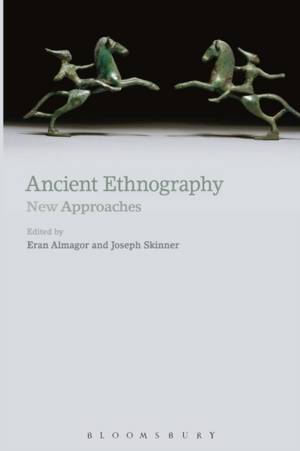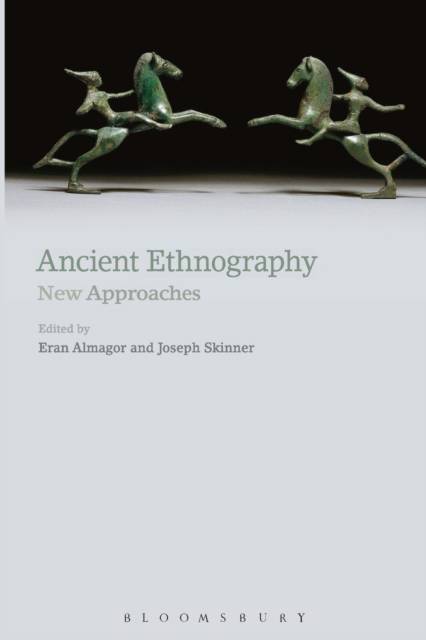
- Afhalen na 1 uur in een winkel met voorraad
- Gratis thuislevering in België vanaf € 30
- Ruim aanbod met 7 miljoen producten
- Afhalen na 1 uur in een winkel met voorraad
- Gratis thuislevering in België vanaf € 30
- Ruim aanbod met 7 miljoen producten
Zoeken
Omschrijving
Ethnographic writing has become all but ubiquitous in recent years. Although now considered a thoroughly modern and increasingly indispensable field of study, Ethnography's roots go all the way back to antiquity. This volume brings together eleven original essays exploring the wider intellectual and cultural milieux from which ancient ethnography arose, its transformation and development in antiquity, and the way in which 19th century receptions of ethnographic traditions helped shape the modern study of the ancient world. Finally, it addresses the extent to which all these themes remain inextricably intertwined with shifting and often highly contested notions of culture, power and identity. Its chapters deal with the origins of the term 'barbarian', the role of ethnography in Tacitus' Germania, Plutarch's Lives, Xenophon's Anabasis, and Athenaeus' Deipnosophistae, Herodotean storytelling, Henry and George Rawlinson, and Megasthenes' treatise on India.
At a time when modern ethnographies are becoming increasingly prevalent, wide-ranging, and experimental in their approach to describing cultural difference, this book encourages us to think about ancient ethnography in new and interesting ways, highlighting the wealth of material available for study and the complexities underpinning ancient and modern notions of what it meant to be Greek, Roman or 'barbarian'.
At a time when modern ethnographies are becoming increasingly prevalent, wide-ranging, and experimental in their approach to describing cultural difference, this book encourages us to think about ancient ethnography in new and interesting ways, highlighting the wealth of material available for study and the complexities underpinning ancient and modern notions of what it meant to be Greek, Roman or 'barbarian'.
Specificaties
Betrokkenen
- Auteur(s):
- Uitgeverij:
Inhoud
- Aantal bladzijden:
- 296
- Taal:
- Engels
Eigenschappen
- Productcode (EAN):
- 9781474234764
- Verschijningsdatum:
- 23/04/2015
- Uitvoering:
- Paperback
- Formaat:
- Trade paperback (VS)
- Afmetingen:
- 156 mm x 234 mm
- Gewicht:
- 417 g

Alleen bij Standaard Boekhandel
+ 176 punten op je klantenkaart van Standaard Boekhandel
Beoordelingen
We publiceren alleen reviews die voldoen aan de voorwaarden voor reviews. Bekijk onze voorwaarden voor reviews.








